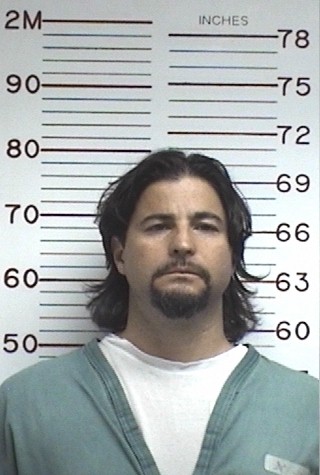Update: The Office of the State Public Defender filed a notice of appeal on Monday, March 3.
By Jeffrey A. Roberts
CFOIC Executive Director
A judge has ordered the Colorado Office of the State Public Defender to pay a prison inmate a $25-a-day penalty, totaling $13,650, for its “arbitrary and capricious” denial of his request for a policy document.
In a Jan. 13 ruling, Jefferson County District Court Judge Todd Vriesman determined that the public defender’s regional office in Golden is subject to the Colorado Criminal Justice Records Act and abused its discretion under the statute by not providing Eric St. George with its official policy regarding whether discovery files can be kept from clients held in pre-trial detention.
St. George, who fired a shotgun at a Lakewood police officer in 2016 and is serving a 32-year sentence at the Fremont Correctional Facility, asked for the record three times, according to a pro se lawsuit he filed in 2023. The head of the Golden office responded to the third letter by stating he was not “able to determine what document(s) are …. requested.”

A Sept. 12, 2024, hearing on the lawsuit revealed that the policy amounted to “two or three paragraphs in length and was contained in a longer administrative document,” Vriesman wrote. “The document itself was not produced,” the judge added. “Instead, counsel for the OPD (Office of the Public Defender) reproduced the language of the policy in a filed Addendum submitted the day after the hearing.”
Vriesman’s order also says that “OPD’s employees and lawyer ignored or refused process of service and ignored subsequent court orders.” And “at no time during this proceeding was there any evidence presented, in affidavit form or at a hearing, to substantiate the contention that the OPD did not know of Plaintiff’s record requests by letter or by proceedings in this lawsuit.”
“The Court finds that, after considering the intent of the (Colorado) Open Records Act and the CCJRA and the circumstances here, the OPD’s actions were arbitrary and capricious,” the judge wrote.
Challenging a denial of records under the criminal justice records law is more difficult than it is under CORA. Judges must review CCJRA denial decisions for an “abuse of discretion” by a records custodian, the Colorado Supreme Court decided in 2008.
If the court finds that the withholding of records was “arbitrary or capricious, it may order the custodian to pay the applicant’s court costs and attorney fees in an amount to be determined by the court.” If the denial of a record of official action was arbitrary or capricious, a judge “may also order the custodian personally to pay to the applicant a penalty in an amount not to exceed twenty-five dollars for each day that access was improperly denied.”
Vriesman wrote in his order that he couldn’t award St. George attorney fees and court costs because the inmate represented himself “and filing fees were waived by indigency.” Instead, he imposed a $25-a-day penalty for 546 days, from Mar. 17, 2023, three days after St. George’s first request, to Sept. 13, 2024, when the filed addendum was sent to him.
In a Feb. 3 motion, the public defender asked Vriesman to reconsider his order, contending that his judgment is “void” because the office wasn’t properly served in St. George’s case under the Colorado Rules of Civil Procedure.
Representing the public defender, Senior Assistant Attorney General Scott Schultz also argued that CCJRA does not apply to the office and that the policy document requested by St. George requested is not a “criminal justice record.” CORA also doesn’t apply, he added, because the public defender’s office is instead subject to the judiciary’s administrative records rules — P.A.I.R.R. 2 (Rule 2 – Public Access to Information and Records).
Schultz wrote that the public defender’s office “is not comprised of any peace officers, nor is (it) involved in the investigation of crime for the purpose of enforcement.” Therefore, it’s not a “criminal justice agency’ subject to CCJRA and the penalties assessed against it are “improper.”
St. George’s request was “not proper” because it was not submitted under P.A.I.R.R. 2, the public defender’s motion says. It also claims the office “never denied” St. George inspection of the policy. There is no “record evidence” of the request letters sent by St. George, Schultz wrote. “Even if there was a record of those letters, a failure to respond is not a denial of inspection.”
Vriesman has not yet ruled on the Feb. 3 motion.
Follow the Colorado Freedom of Information Coalition on X or BlueSky. Like CFOIC’s Facebook page. Do you appreciate the information and resources provided by CFOIC? Please consider making a tax-deductible donation.




